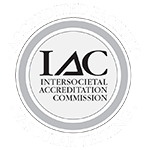
Vasculitis is a group of rare diseases characterized by inflammation of blood vessels. This inflammation can cause a wide range of symptoms and complications, affecting various organs and systems in the body. Understanding vasculitis from a vascular perspective is crucial for accurate diagnosis, effective treatment, and improved patient outcomes.
Understanding Vasculitis:
Vasculitis can affect any blood vessel in the body, including arteries, veins, and capillaries. The inflammation can lead to narrowing or blockage of the blood vessels, compromising blood flow to tissues and organs. This disruption in blood flow can result in tissue damage, organ dysfunction, and potentially life-threatening complications.
Types of Vasculitis:
There are many different types of vasculitis, classified based on the size of the blood vessels affected and the specific features of the inflammation. Some of the more common types of vasculitis include:
- Large vessel vasculitis: This type of vasculitis affects the larger arteries, such as the aorta and its major branches. Examples include giant cell arteritis and Takayasu arteritis.
- Medium vessel vasculitis: Medium vessel vasculitis involves inflammation of medium-sized arteries. Examples include polyarteritis nodosa and Kawasaki disease.
- Small vessel vasculitis: Small vessel vasculitis affects the small arteries, veins, and capillaries. Examples include granulomatosis with polyangiitis (Wegener's granulomatosis), microscopic polyangiitis, and eosinophilic granulomatosis with polyangiitis (Churg-Strauss syndrome).
Each type of vasculitis presents with its own set of symptoms, disease course, and potential complications. Prompt recognition and diagnosis are essential for appropriate management.
Symptoms and Complications:
The symptoms of vasculitis vary depending on the type of blood vessels affected and the organs involved. Common symptoms may include:
- Fever
- Fatigue
- Weight loss
- Muscle and joint pain
- Skin rashes
- Nerve damage (numbness, tingling, weakness)
- Shortness of breath
- Chest pain
- Abdominal pain
- Kidney problems (such as blood in the urine or decreased kidney function)
Complications of vasculitis can be severe and may include organ damage, such as vision loss in giant cell arteritis, heart attacks or strokes in large vessel vasculitis, kidney failure in certain types of vasculitis, and nerve damage leading to paralysis or loss of limb function.
Diagnosis and Treatment:
Diagnosing vasculitis can be challenging due to its diverse clinical manifestations and the need for careful evaluation of symptoms, medical history, physical examination findings, and laboratory tests. Imaging studies such as CT scans, MRI, and angiography may be used to assess blood vessel inflammation and organ involvement.
Treatment for vasculitis aims to reduce inflammation, control symptoms, prevent organ damage, and improve overall quality of life. Depending on the type and severity of vasculitis, treatment may involve:
- Corticosteroids to suppress inflammation
- Immunosuppressive medications to modulate the immune response
- Biologic agents targeting specific inflammatory pathways
- Plasma exchange therapy in severe cases
- Supportive measures to manage symptoms and complications
Close monitoring by a multidisciplinary team of healthcare providers, including vascular specialists, and others, is essential for optimizing treatment outcomes and minimizing potential side effects of therapy.
Vasculitis is a complex group of diseases characterized by inflammation of blood vessels, with potentially serious consequences for affected individuals. A vascular medical approach to vasculitis involves comprehensive evaluation, accurate diagnosis, and personalized treatment strategies aimed at reducing inflammation, preserving organ function, and improving quality of life.








_2.jpg)